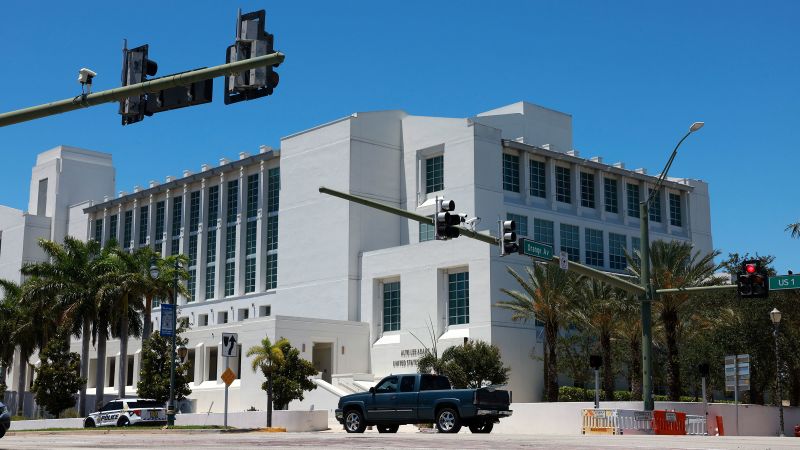In a series of hearings held in Fort Pierce, Florida, Judge Aileen Cannon challenged prosecutors from special counsel Jack Smith’s team to clarify how former President Donald Trump’s comments about the FBI posed a threat against law enforcement officers. Despite the special counsel’s office arguing that a gag order was necessary due to Trump’s misleading allegations about the agents who searched his Mar-a-Lago estate, claiming they were authorized to kill him, Cannon appeared hesitant to approve restrictions on Trump’s speech and did not immediately issue a ruling. The judge also listened to arguments regarding Trump’s motion alleging improper funding of the special counsel’s office but did not make a decision on that matter.
During Monday’s hearings, Cannon expressed skepticism towards prosecutors’ claims, asking for concrete evidence linking Trump’s statements to actual threats. She emphasized the need for connecting facts between the former president’s remarks and the alleged risks they were warning about. Cannon pointed out that a factual connection was required between Trump’s comments and potential threats, stating that prosecutors must show a clear relationship between the two.
Prosecutor David Harbach argued that Trump’s other posts and comments could result in various negative outcomes, including threats or harassment towards law enforcement. He maintained that limits should be imposed on Trump’s speech to ensure the safety of FBI agents involved in the case. However, Cannon engaged in a heated exchange with Harbach, criticizing his tone and lack of decorum during his arguments. She reprimanded him for not providing court rulings on gag orders against Trump, despite referencing them in their arguments. Harbach later apologized for his behavior.
Trump’s defense attorney, Todd Blanche, contended that there were no threats towards FBI agents in Trump’s communications cited by the government. He argued that the Justice Department was attempting to punish Trump for other people’s comments and set a dangerous precedent by altering the former president’s conditions of release. Blanche expressed concerns about the vague definition of what constitutes a threat, potentially making Trump liable for others’ remarks.
In the morning session, Cannon questioned Justice Department attorney James Pearce on the department’s financial spending in the Trump criminal cases and sought clarification on the laws governing past special prosecutors. She also raised the issue of congressional oversight of the special counsel’s office’s work and funding, echoing arguments made by the Trump team regarding Smith’s independence.
Justice Department attorneys defended the special counsel’s operation under established policies and reiterated their commitment to funding the prosecution of Trump under the attorney general’s authorization. Meanwhile, Republicans in Congress have pushed for increased scrutiny of the DOJ’s use of the special counsel’s office and its funding.











